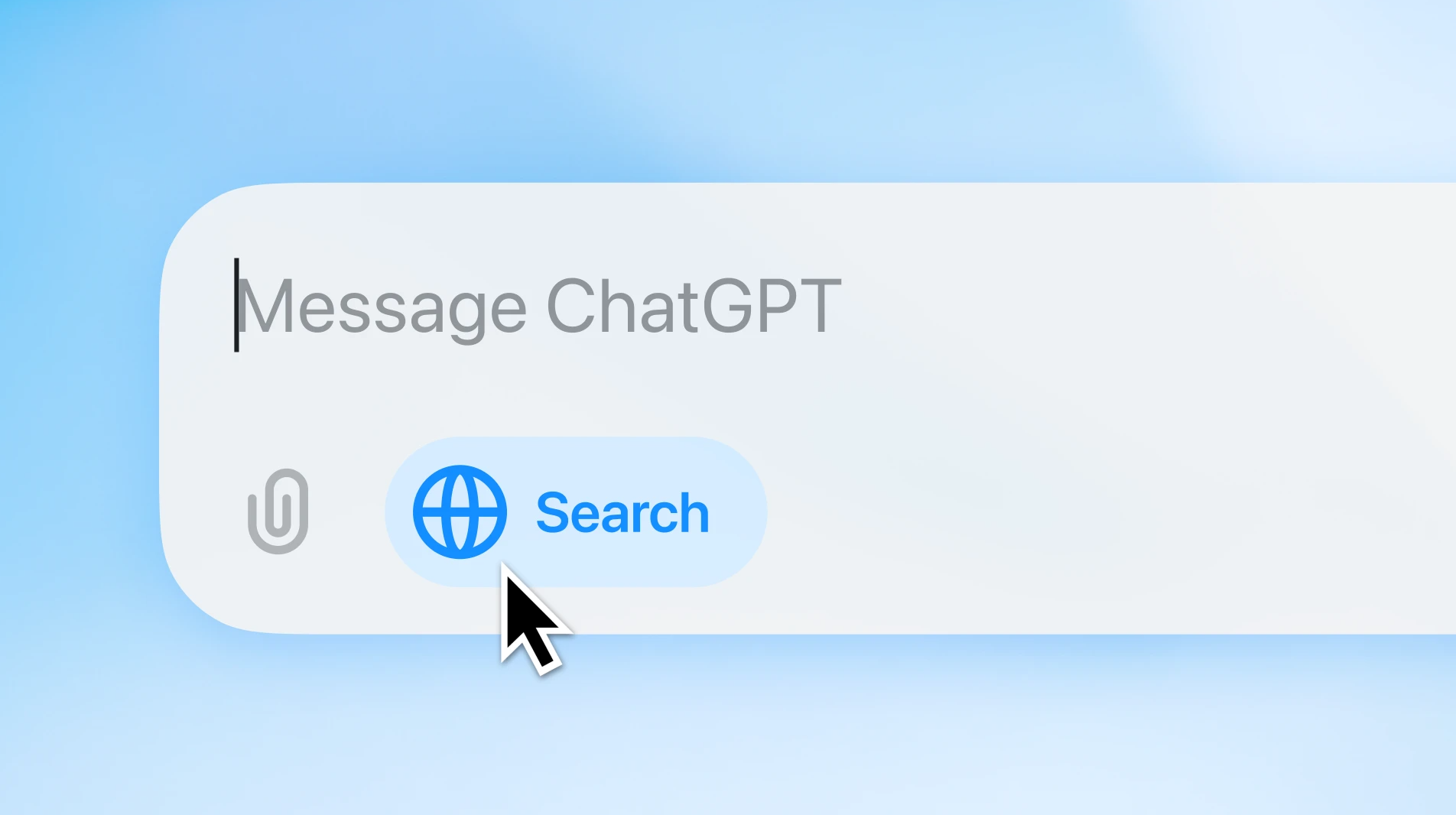OpenAI adds web search to ChatGPT free for all, and may just kill the WWW as we know it

Update –
- ChatGPT search is now available to everyone for free and no registration is required. This means that OpenAI is increasingly competing with Google and Perplexity.
OpenAI has integrated web search capabilities into ChatGPT after a beta test of SearchGPT. If ChatGPT search is successful, it won't just affect Google - it will change the whole WWW.
The new feature, now live on chatgpt.com, gives users direct access to current information like sports scores, news, stock prices, and weather forecasts. The system automatically starts a web search when it determines one is needed, though users can also trigger searches manually.
Similar to existing AI search tools like Perplexity, it scans multiple internet sources and provides brief summaries with linked citations. Certain data points like sports scores and stock prices appear directly in the chat interface.
Video: OpenAI
OpenAI says the search functionality uses a fine-tuned version of GPT-4o optimized with synthetic data and output from the company's new o1-preview "Reasoning" model. OpenAI has used Microsoft's Bing algorithm for search ranking in the past, and now says it "leverages third-party search providers."
The search feature is now live for ChatGPT Plus and Team subscribers, as well as those on the SearchGPT waitlist. Enterprise and education customers will get access in the coming weeks, with free users following a few months later. OpenAI has also released a Chrome extension that can set ChatGPT as the browser's default search engine on Google's home turf.
OpenAI's ChatGPT search puts the squeeze on web publishers
For news content, OpenAI has licensing agreements with major outlets such as Associated Press, Axel Springer, Financial Times, Reuters, and Vox Media.
In Germany, for example, this means that news results heavily favor Springer-owned publications such as Bild and Welt, which have strong political agendas and are mostly considered part of the low-quality tabloid press. OpenAI has not disclosed how it selects which publishers to partner with for licensing agreements.
OpenAI has invested hundreds of millions in building this prisoner's dilemma, a strategy that has been in the works for a long time.
Website owners now face a difficult choice: they can either allow ChatGPT to use their content for free through robots.txt and get minimal traffic in return, or risk becoming invisible in ChatGPT's search results. For sites without an OpenAI license agreement, neither option looks particularly appealing.
For OpenAI, the strategy may be working exactly as planned. Publishers are now under increasing pressure to either strike a licensing deal with OpenAI or watch their web traffic potentially decline as more users shift to ChatGPT for their searches.
AI News Without the Hype – Curated by Humans
As a THE DECODER subscriber, you get ad-free reading, our weekly AI newsletter, the exclusive "AI Radar" Frontier Report 6× per year, access to comments, and our complete archive.
Subscribe nowAI news without the hype
Curated by humans.
- Over 20 percent launch discount.
- Read without distractions – no Google ads.
- Access to comments and community discussions.
- Weekly AI newsletter.
- 6 times a year: “AI Radar” – deep dives on key AI topics.
- Up to 25 % off on KI Pro online events.
- Access to our full ten-year archive.
- Get the latest AI news from The Decoder.